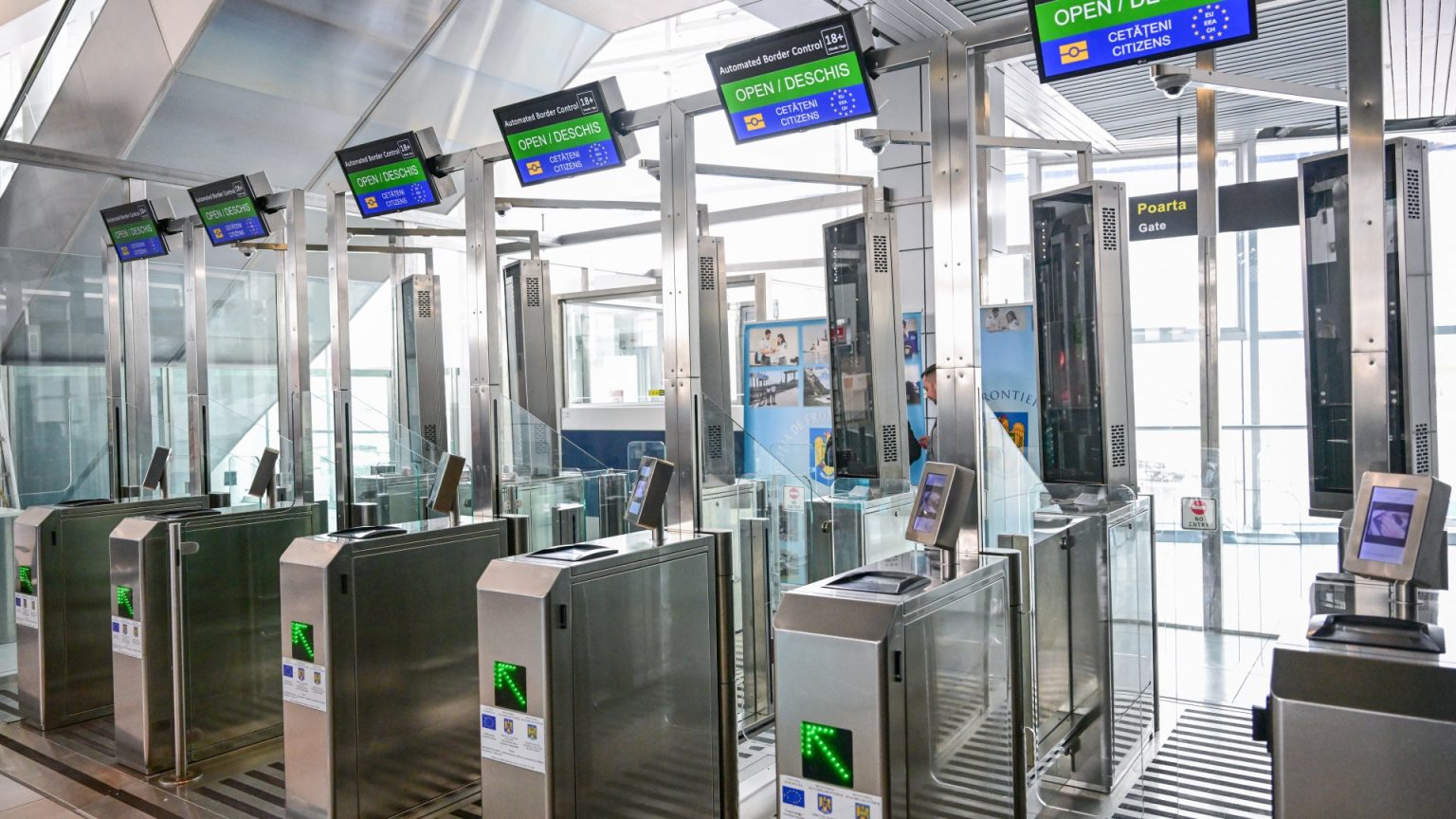Starting in 2025, British travelers venturing to Europe will encounter a series of new travel regulations designed to enhance security and streamline border control. These changes, while intended to improve long-term efficiency, are predicted to cause significant disruptions and extended wait times, particularly during the initial implementation phase. Travelers are strongly advised to familiarize themselves with these upcoming changes and prepare for potential delays to ensure smooth journeys.
The most significant change involves the European Union’s Entry/Exit System (EES), a digital border control system replacing traditional passport stamps. EES will utilize biometric data, including fingerprints and facial scans, to monitor entries and exits from the Schengen Area. First-time users will undergo a comprehensive registration process involving passport scanning, fingerprint collection, facial photography, and answering travel-related questions. Subsequent entries within the following three years, or until passport expiry, will require only a single biometric identifier (fingerprint or facial scan). Checks for travelers using Eurostar, Eurotunnel, or ferry services will occur before departure from the UK, while air travelers will be processed upon arrival. Drivers will be required to exit their vehicles for checks, raising concerns about extensive queues at ferry ports. Although pre-registration through an app or self-service kiosks will be available at some locations, a phased rollout is anticipated. Children under 12 will only need to have their photo taken.
In addition to the EES, British citizens will also be subject to the European Travel Information and Authorisation System (ETIAS), a visa-waiver program for non-EU nationals traveling to the Schengen Zone. The ETIAS, costing €7 (£6), will be valid for three years or until passport expiry, whichever occurs first. Applications will be submitted online, with processing times potentially extending up to 96 hours for cases requiring further scrutiny. Travelers are cautioned against fraudulent ETIAS websites and advised to utilize only official channels. While both EES and ETIAS are designed to expedite border crossings in the long run, the initial rollout is expected to generate considerable delays, potentially resulting in queues lasting up to 14 hours at busy ports like Dover, where processing space is limited. Travelers are urged to pack extra provisions, such as snacks and water, to mitigate the impact of these anticipated delays.
Exacerbating the challenges posed by new border control systems, numerous European cities are implementing or increasing tourist taxes. Amsterdam, for instance, has already introduced a 12.5% tax on hotel stays, the highest in Europe. Barcelona and Venice are set to follow suit in 2025, further increasing the financial burden on travelers, particularly those visiting popular destinations. These rising costs, combined with the potential for extended border processing times, necessitate careful planning and budgeting for future European travel.
Existing regulations, such as passport validity requirements and ESTA restrictions for US travel, remain in effect. British travelers who have visited Cuba since January 2021 are ineligible for ESTA and must apply for a US tourist visa, a more complex and costly process involving an in-person interview. Passport validity rules also continue to apply: passports must be issued within the last 10 years and have at least three months’ validity remaining for travel to Europe and at least six months for travel to the US. Damaged passports should be replaced before visa applications to avoid processing delays.
The convergence of these new and existing travel regulations presents a complex landscape for British travelers. The introduction of EES and ETIAS, coupled with increased tourist taxes and ongoing passport/visa requirements, necessitates thorough preparation and heightened awareness of potential delays. While these changes aim to improve long-term border security and efficiency, the immediate impact is likely to be disruptive. Travelers are advised to stay informed, plan ahead, and pack accordingly to mitigate the challenges posed by these evolving regulations.
Beyond packing essentials for potential delays, travelers are encouraged to proactively manage their travel documentation. Ensuring passports meet validity requirements, applying for ETIAS waivers well in advance of travel dates, and being aware of potential ESTA restrictions based on travel history are crucial steps in minimizing potential issues. Staying updated on the specific implementation timelines for EES and ETIAS is also recommended, as phased rollouts and potential technical glitches could further complicate travel plans. By remaining informed and prepared, British travelers can navigate these changes effectively and minimize disruptions to their European adventures in 2025 and beyond.


